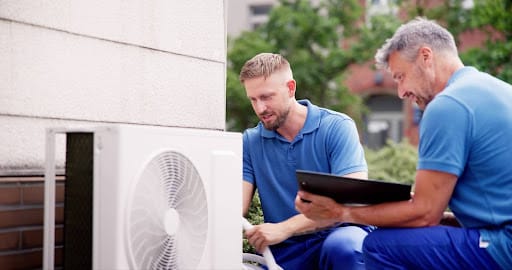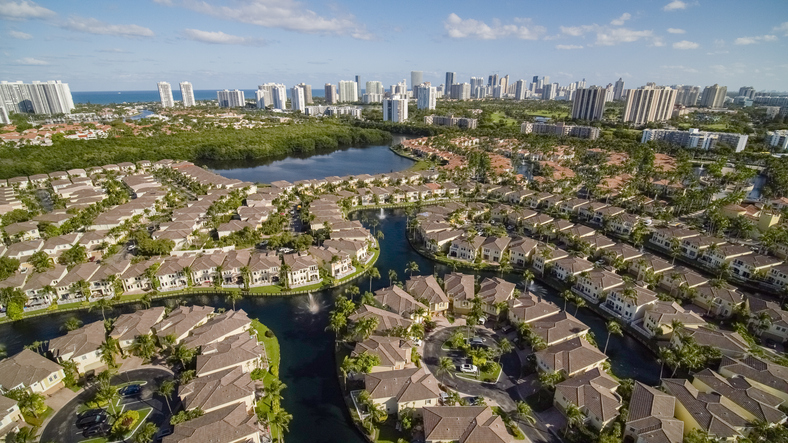
10 Reasons Why Your Home AC Isn’t Shutting Off
An air conditioner (AC) that runs nonstop can be a cause for concern for many homeowners. Not only does it lead to higher energy bills, but it can also signal underlying issues that need immediate attention. If you’ve noticed your AC running nonstop, running the entire day, or simply won’t stop running, it’s essential to identify and address the problem promptly. In this comprehensive guide, we’ll explore ten common reasons why your home AC isn’t shutting off and provide actionable steps to resolve these issues.
1. Incorrect Thermostat Settings
Why It Happens
One of the simplest yet most overlooked reasons for an AC running non stop is incorrect thermostat settings. If the thermostat is set to a temperature lower than necessary or is in a continuous cooling mode, the AC will keep running to reach the desired temperature.
Signs to Look For
- The thermostat is set to a very low temperature.
- The fan is set to “ON” instead of “AUTO.”
- The thermostat is in a location that misreads the actual room temperature.
How to Fix It
- Adjust the Temperature: Set the thermostat to a reasonable temperature, usually between 72°F and 78°F.
- Set Fan to AUTO: Ensure the fan setting is on “AUTO” so that it only runs when cooling is needed.
- Relocate the Thermostat: If the thermostat is near a heat source or in direct sunlight, consider relocating it to a more central location.
2. Dirty Air Filters
Why It Happens
Air filters trap dust, dirt, and other particles, preventing them from entering the HVAC system. Over time, these filters can become clogged, restricting airflow and causing the AC to work harder and run longer.
Signs to Look For
- Reduced airflow from vents.
- Increased dust in your home.
- Higher than usual energy bills.
How to Fix It
- Regular Replacement: Replace air filters every 1-3 months, depending on usage and filter type.
- High-Efficiency Filters: Use high-efficiency filters to trap more particles and improve airflow.
3. Refrigerant Leak
Why It Happens
Refrigerant is essential for cooling, and a leak can cause the AC to run continuously as it struggles to reach the set temperature.
Signs to Look For
- Decreased cooling efficiency.
- Ice buildup on the refrigerant lines.
- Hissing or bubbling sounds from the AC unit.
How to Fix It
- Professional Repair: Contact an HVAC technician to locate and repair the leak and recharge the refrigerant levels.
- Regular Maintenance: Schedule annual maintenance checks to identify and address potential leaks early.
4. Dirty Condenser Coils
Why It Happens
The condenser coils, located in the outdoor unit, can accumulate dirt and debris over time. This build-up can insulate the coils, reducing their ability to dissipate heat and causing the AC to run nonstop.
Signs to Look For
- Warm air is coming from the vents.
- The outdoor unit is dirty or obstructed.
- Increased energy bills.
How to Fix It
- Clean the Coils: Regularly clean the condenser coils with a garden hose or a specialized coil cleaner.
- Clear Obstructions: Ensure the area around the outdoor unit is free from debris, plants, and other obstructions.
5. Faulty Thermostat
Why It Happens
A malfunctioning thermostat can cause the AC to run continuously, either by misreading the temperature or failing to signal the AC to turn off.
Signs to Look For
- Inconsistent temperature readings.
- The thermostat display is not working correctly.
- The AC continues to run even when the desired temperature is reached.
How to Fix It
- Replace Batteries: If the thermostat is battery-operated, replace the batteries to see if it resolves the issue.
- Upgrade the Thermostat: Consider upgrading to a programmable or smart thermostat for more accurate temperature control.
- Professional Inspection: Have a technician inspect and repair or replace the faulty thermostat.
6. Leaky Ductwork
Why It Happens
Leaks or holes in the ductwork can cause cooled air to escape before it reaches the living spaces, making the AC run longer to compensate for the loss.
Signs to Look For
- Uneven cooling in different rooms.
- Higher energy bills.
- Visible damage or disconnections in the ductwork.
How to Fix It
- Seal the Ducts: Use duct tape or mastic sealant to seal visible leaks and connections.
- Professional Inspection: Hire a professional to inspect and repair or replace damaged ductwork.
7. Undersized AC Unit
Why It Happens
An AC unit that is too small for the space it needs to cool will struggle to maintain the desired temperature, causing it to run nonstop.
Signs to Look For
- The AC runs continuously but fails to cool the home adequately.
- High energy bills.
- The unit frequently cycles on and off (short cycling).
How to Fix It
- Correct Sizing: Have a professional perform a load calculation to determine the correct size AC unit for your home.
- Upgrade the Unit: If necessary, upgrade to a properly sized unit to ensure efficient cooling.
8. Oversized AC Unit
Why It Happens
Conversely, an oversized AC unit can also cause problems. It may cool the space too quickly, resulting in short cycles that don’t adequately remove humidity and lead to frequent running.
Signs to Look For
- The AC turns on and off frequently.
- High humidity levels in the home.
- Increased wear and tear on the unit.
How to Fix It
- Professional Assessment: Have a professional assess the size of your AC unit and the cooling needs of your home.
- Upgrade if Necessary: If the unit is too large, consider upgrading to a correctly sized unit to improve efficiency and comfort.
9. Blocked or Closed Vents
Why It Happens
Blocked or closed vents can restrict airflow, causing the AC to work harder to distribute cool air throughout the home.
Signs to Look For
- Uneven cooling in different rooms.
- Increased energy bills.
- Visible obstructions in or near the vents.
How to Fix It
- Clear Obstructions: Ensure that furniture, curtains, and other objects are not blocking the vents.
- Open Vents: Keep all vents open to allow for proper airflow and balanced cooling.
10. Poor Insulation
Why It Happens
Inadequate insulation can cause cooled air to escape and hot air to enter, making the AC run longer to maintain the desired temperature.
Signs to Look For
- The home remains warm despite the AC running continuously.
- Higher energy bills.
- Drafts and temperature fluctuations.
How to Fix It
- Improve Insulation: Add or upgrade insulation in the attic, walls, and floors to reduce air leakage.
- Seal Gaps and Cracks: Use weatherstripping and caulk to seal gaps around windows and doors.
Preventative Measures to Avoid an AC Running Non-Stop
To prevent your AC from running nonstop and ensure it operates efficiently, follow these preventative measures:
1. Schedule Regular Maintenance
Regular maintenance by a professional HVAC technician can help identify and address potential issues before they become major problems. This includes cleaning the coils, checking refrigerant levels, inspecting electrical components, and ensuring the system is running efficiently.
2. Replace Filters Regularly
Replacing or cleaning air filters every 1-3 months can prevent dust and debris build-up, ensuring proper airflow and efficient operation.
3. Monitor Thermostat Settings
Keep an eye on your thermostat settings and ensure it is functioning correctly. Consider upgrading to a programmable or smart thermostat for better control and efficiency.
4. Keep the Area Clean
Ensure the area around your outdoor unit is free from debris, plants, and other obstructions that could affect airflow and lead to system inefficiency.
5. Check for Leaks
Regularly inspect your ductwork and AC components for any signs of leaks. Addressing leaks promptly can prevent air loss and maintain system efficiency.
6. Improve Home Insulation
Proper insulation can help maintain a consistent temperature in your home, reducing the workload on your AC unit and preventing it from running nonstop.
7. Use Ceiling Fans
Ceiling fans can help circulate cool air throughout your home, reducing the need for the AC to run continuously.
8. Close Blinds and Curtains
Closing blinds and curtains during the hottest parts of the day can reduce the amount of heat entering your home, helping to maintain a cooler indoor temperature.
9. Seal Windows and Doors
Ensure windows and doors are properly sealed to prevent air leakage and maintain a consistent indoor temperature.
10. Address Issues Promptly
Be vigilant about any changes in the performance of your AC unit. Addressing issues promptly can prevent minor problems from becoming major repairs.
When to Call a Professional
While some minor maintenance tasks can be done by homeowners, certain situations require the expertise of a professional HVAC technician. Here are some scenarios where you should definitely call for professional help:
1. Persistent Running
If your air conditioner continues to run nonstop despite your efforts to address the issue, it’s time to call a professional. Persistent running often indicates underlying issues that need expert attention.
2. Reduced Cooling Efficiency
If your AC is struggling to cool your home effectively, there could be multiple issues at play, such as low refrigerant levels, dirty coils, or a failing compressor. A professional can diagnose and fix these problems.
3. High Energy Bills
Unusually high energy bills can be a sign that your air conditioner is not operating efficiently. Professional maintenance can help improve efficiency and reduce energy costs.
4. Frequent Cycling
If your air conditioner is frequently turning on and off (short-cycling), it can indicate issues like an oversized unit, thermostat problems, or electrical issues. This not only reduces efficiency but also wears out the system faster. A professional technician can identify and resolve the underlying causes.
5. Unusual Noises or Smells
If your AC unit is making unusual noises or emitting strange smells, it could indicate serious issues such as electrical problems, refrigerant leaks, or mechanical failures. These should be addressed by a professional to prevent further damage and ensure safety.
6. Water Leaks
If you notice water pooling around your indoor unit, it’s a sign of a clogged drain line or other issues. Ignoring water leaks can lead to significant water damage and mold growth. A professional can clear the drain line and check for other potential issues.
7. Poor Airflow
If you notice weak or inconsistent airflow from your vents, there could be blockages in the ductwork or issues with the blower motor. A professional can inspect the system and make the necessary repairs to restore proper airflow.
Ensuring Efficient Operation: Addressing a Nonstop Running Air Conditioner
An air conditioner that runs nonstop can be a symptom of various issues, ranging from simple thermostat settings to more complex problems like refrigerant leaks or electrical faults. By understanding the common reasons why your AC might be running the entire day, you can take the appropriate steps to address these issues and restore efficient operation.
Regular maintenance and prompt professional assistance are crucial in preventing and resolving these problems. By following the preventative measures outlined in this guide and seeking help from a certified HVAC technician when needed, you can ensure that your air conditioner runs smoothly and efficiently, keeping your home comfortable and your energy bills under control.
At Natal Air Conditioning, our experienced technicians are ready to help you with all your air conditioning needs. Whether it’s diagnosing why your AC won’t stop running, performing routine maintenance, or repairing complex issues, we are just a call away. Contact us today to schedule an appointment and ensure your home stays cool and comfortable all year round.













